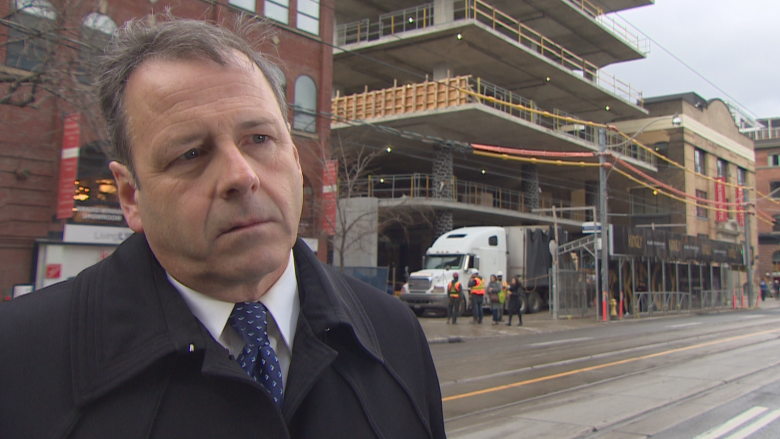New year, same old expensive rent in Toronto. Weren't we fixing this?
Toronto tenants may now be legally protected from drastic rent increases, but the measure seems more like a consolation prize when rent was so high before the new rules were set.
Six months after Ontario's Fair Housing Plan was introduced, rent in the province's biggest city continues to soar, according to a report by a rental listings search engine operating in Canada and the U.S.
A new report by PadMapper says Toronto recently surpassed Vancouver as the country's most expensive rental city for the first time, with average monthly rent for a one-bedroom condo in Toronto in December 2017 hitting $2,020 — $20 higher than Vancouver's.
That's a 15.4 per cent increase from the same period last year.
"It's very high," Muhammed Job, 22, told CBC Toronto.
Job pays $1,750 a month for his one-bedroom downtown apartment. He looked for something cheaper in other neighbourhoods but found everything near the subway was a similar price.
"Even if you go up to North York [in suburban Toronto]. I was thinking maybe I'll just go up there and commute, but the price difference was, like, a hundred bucks," Job said.
With last year's legislation, landlords can't raise rent more than 2.5 per cent annually — even in units built after 1991.
But they can still set the price of a new lease at whatever the market demands. And for a number of reasons, Toronto's rental market is raging right now.
"It was the strongest year for rent growth that we've ever recorded," Shaun Hildebrand, senior vice-president of the real estate research firm Urbanation, said in an interview.
According to Urbanation, the average monthly rent for a condominium in Toronto rose to $2,166 between Jan. 1 2017 and Jan. 1, 2018 — a 9.1 per cent jump.
Urbanation predicts even higher rents in 2018, but does not expect it to rise as sharply as last year.
Hildebrand said Toronto's strong economy, low unemployment and growing population are contributing to the increased cost of rentals.
Also, what's the alternative?
The average sale price of a home in 2017 was $822,681, according to a year-end report by the Toronto Real Estate Board.
Another key factor is just how few available rental units are out there. In November, the vacancy rate of rental properties was at 1.1 per cent — the lowest it's been in 16 years.
And here's where some say Ontario's Fair Housing Plan may be contributing to the tight rental market.
Hildebrand said now that tenants are guaranteed their rent won't be hiked more than 2.5 per cent, under the new Ontario rules, "There's a very strong incentive not to move. The units aren't turning over."
As for new supply, some developers say they were having trouble keeping up with demand before last spring, and the new legislation only made it worse.
"It took away an incentive to build badly needed rental units," Jim Murphy, CEO of the Federation of Rental Housing Providers of Ontario, said in an interview.
Starting in 1991 and up until last year's legislation, all new units in the rental market were exempt from price controls.
While the exemption allowed landlords to raise rents drastically — or as drastically as the market allows — Murphy said it was also an incentive for developers to build new rental housing.
"Nobody supports a doubling of rent. But we could have sat down with the government and come up with a solution that prohibits that and still has some sort of recognition for new rentals."
Murphy said there are still plenty of new rental developments being planned across the province, but since the housing legislation was announced, at least 1,000 planned rental units have been converted to condos for sale.
Geordie Dent, executive director of the Metro Toronto Tenants Association, said the rental supply shortage has been years in the making.
He wondered where all the rental housing is if the developers' problem only arose last year with the cancellation of the 1991 exemption.
"When rent was completely deregulated in Ontario, you saw almost no rental housing construction. I don't think that has any weight," Dent said in an interview.
Dent said rent controls should be kept in place to protect tenants and the government needs to introduce more financial incentives for rental housing developers.
If not, he said, rents will continue to rise, pushing renters out of Toronto and reducing the quality of life for those who stay.
"It's killing the city," he said.



